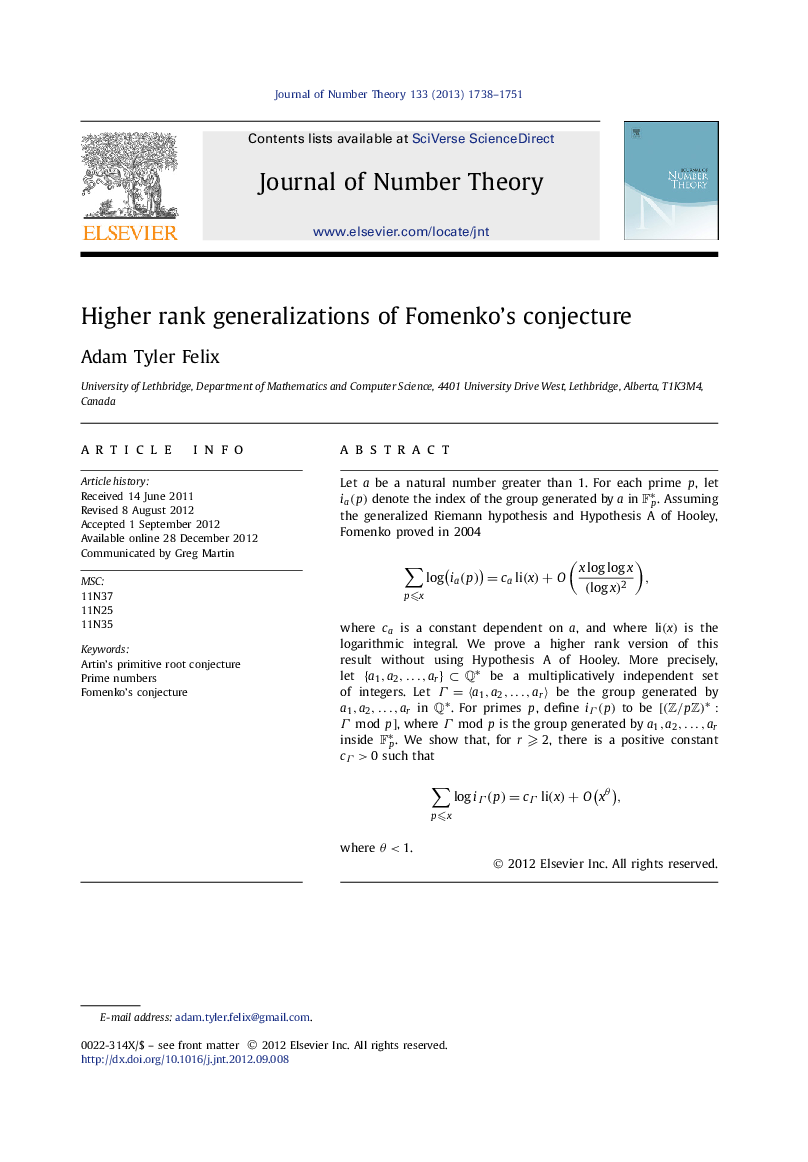| Article ID | Journal | Published Year | Pages | File Type |
|---|---|---|---|---|
| 6415630 | Journal of Number Theory | 2013 | 14 Pages |
Let a be a natural number greater than 1. For each prime p, let ia(p) denote the index of the group generated by a in Fpâ. Assuming the generalized Riemann hypothesis and Hypothesis A of Hooley, Fomenko proved in 2004âp⩽xlog(ia(p))=cali(x)+O(xloglogx(logx)2), where ca is a constant dependent on a, and where li(x) is the logarithmic integral. We prove a higher rank version of this result without using Hypothesis A of Hooley. More precisely, let {a1,a2,â¦,ar}âQâ be a multiplicatively independent set of integers. Let Î=ãa1,a2,â¦,arã be the group generated by a1,a2,â¦,ar in Qâ. For primes p, define iÎ(p) to be [(Z/pZ)â:Îmodp], where Îmodp is the group generated by a1,a2,â¦,ar inside Fpâ. We show that, for r⩾2, there is a positive constant cÎ>0 such thatâp⩽xlogiÎ(p)=cÎli(x)+O(xθ), where θ<1.
